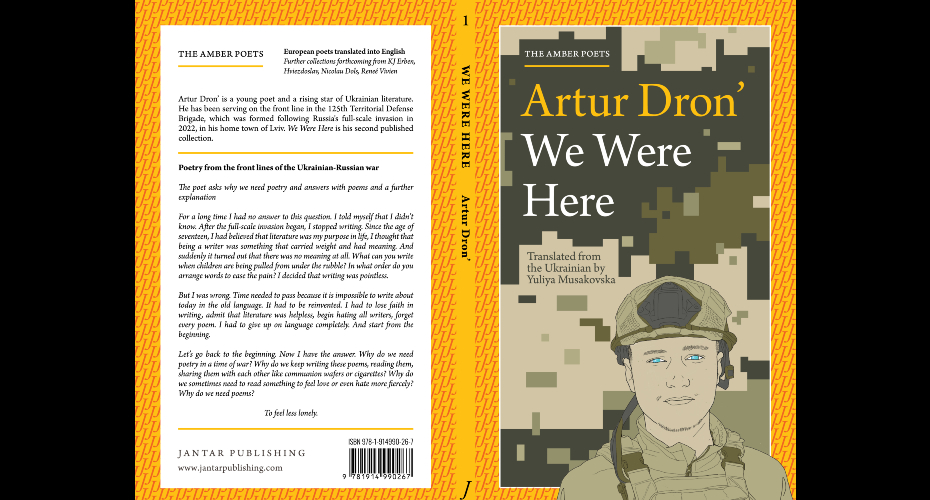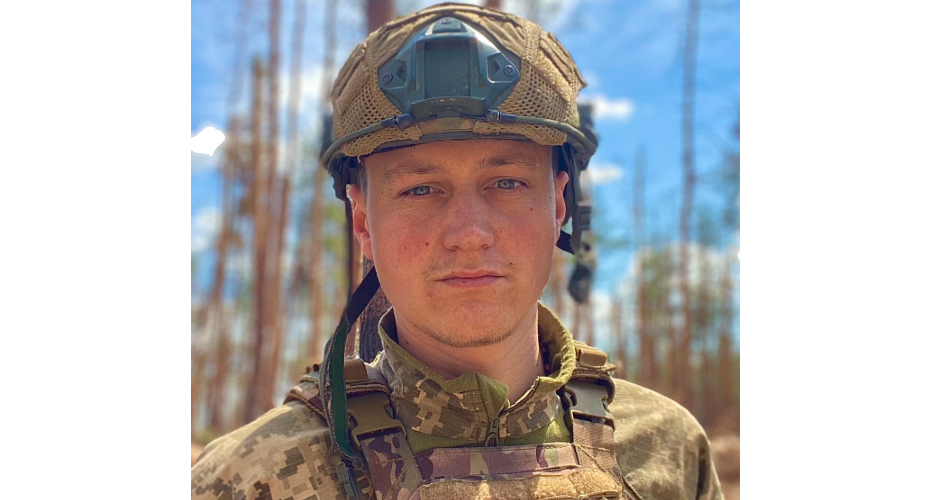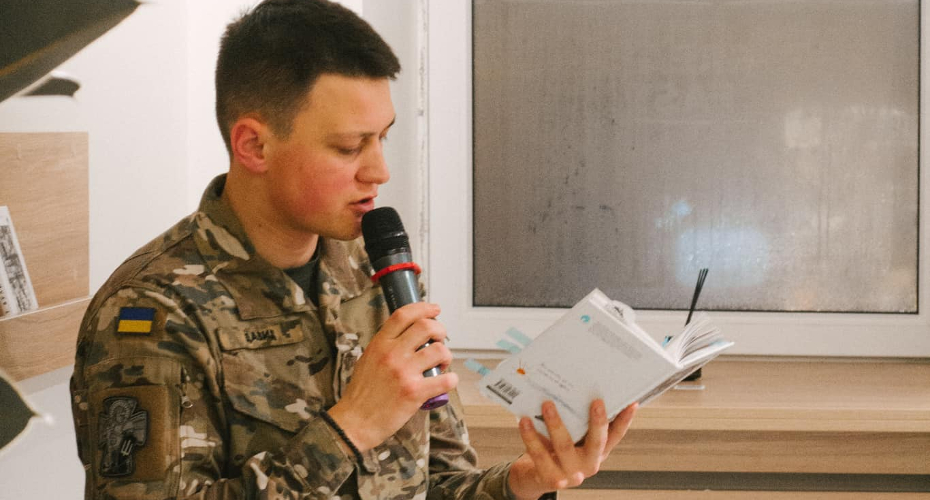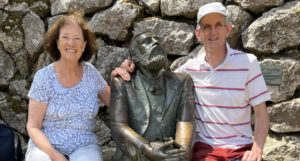Modern languages academics help to bring Ukrainian poetry from the frontline to British and international readers

The poetry of a Ukrainian soldier fighting and writing on the frontline of his nation’s defence against Russia’s invasion has been brought to the English language and published in a poignant collection.
Artur Dron’s We Were Here is among the first from a soldier-poet to be translated into English and publicly released since Russia’s full-scale invasion of Ukraine started in February 2022, and comes as the soldier-poet recovers in hospital after being wounded in a drone attack on the frontline in the past week.
The book, translated by the prominent Ukrainian poet and cultural representative, Yuliya Musakovska, has been supported by modern language experts at the University of Exeter, who have been collaborating with a host of literary partners to support Ukrainian poetry, which is an important cultural bulwark against Russia’s hybrid war.
Professor Hugh Roberts and Professor Helen Vassallo, of the Department of Languages, Cultures and Visual Studies, co-edited the collection, along with poets Fiona Benson and Charlotte Shevchenko-Knight. They worked alongside the translator and Jantar Publishing to bring the book to market.
“The poetry of Artur Dron’ evokes the spirit of love in the face of death and destruction wrought by Russia,” says Professor Roberts, who contributed the foreword to the book. “He is part of a centuries-old lineage of Ukrainian writers and poets who have written in defiance of Russian oppression, whether through culture, language or territory. That Artur is now recovering in hospital after being wounded in a drone attack is a stark illustration of the urgency of translating the work of soldier poets.”
Dron’ was a writer working for Old Lion Publishing House in Lviv when Russia launched its illegal invasion of Ukraine. He had already published his first collection of poetry, Dormitory No. 6 in 2020, and penned the 50 poems contained in We Were Here while serving with the 125th Separate Territorial Defence Brigade.

Musakovska, herself an acclaimed poet and a friend of Dron’, translated the collection into English, even liaising with him via messenger when he wasn’t on active duty. The result is a collection of poems that reflect upon the horrific impact of Russia’s war on Ukraine, for both those on the front line and those on the home front.
The Daily Telegraph‘s culture newsletter has also selected one of the poems, Children, as its ‘Poem of the Week’, and the collection is also being reviewed by The Times Literary Supplement.
“Ordinarily, it takes a long time for a book to go from first pitch to publication,” says Professor Vassallo. “But this has been a remarkable collaborative effort, one that recognises the importance of Artur’s collection, and of getting it to English readers as swiftly as possible. It also emphasises the key role played by independent publishers in championing diversity of literature in translation, and solidarity through translation.”
The translation and publication of the book is the latest in a series of cultural projects led by the University team in support of Ukraine. They have included poetry workshops for refugees, talks and readings in London, Manchester and Exeter, and recordings of readings both in the UK and Ukraine, released on YouTube.
We Were Here is published by Jantar.

Boots, armour, and Kevlar helmets.
Who are we?
We’re kids.
May this land enter our breast
and may it
hurt.
May this land bleed like a wound.
Unknown.
Familiar.
May our machine guns never jam.
Where are we?
We’re home.Extract from Misha



